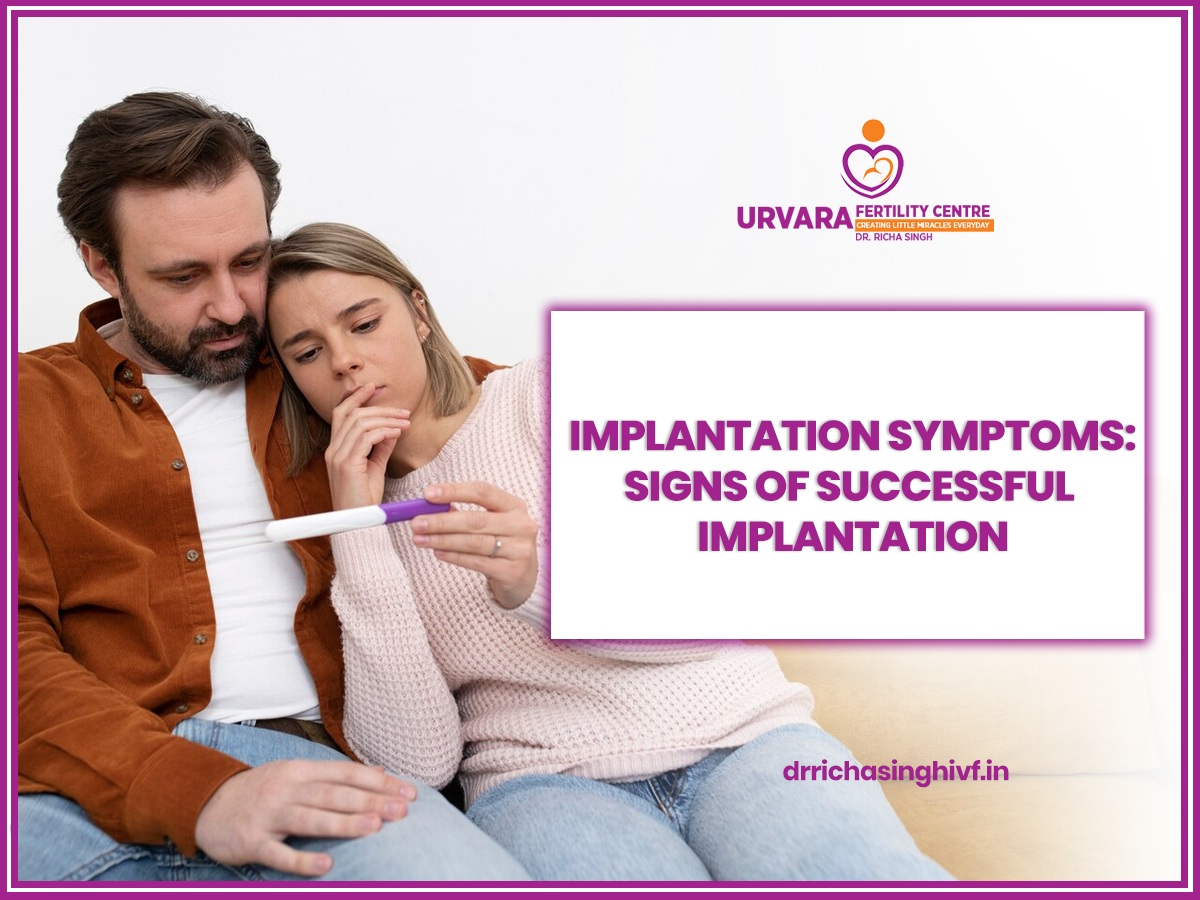Implantation Symptoms: Signs of Successful Implantation
You might be aware of the fact that during pregnancy, the embryo grows in the uterine cavity till birth. Implantation is a stage of pregnancy where the embryo attaches itself to the inner lining of the uterus. It will be interesting to understand how the fertilized egg reaches the uterus and gets implanted in the uterine lining and what are the symptoms of successful implantation.
What is Implantation?
In natural conception, the sperm travels to the fallopian tubes and fertilizes the egg released by the ovaries. After fertilization, the fertilized egg travels to the uterus through the fallopian tube, and during this time, cells of the fertilized egg multiply and reach the uterus. This ball of cells is also called a blastocyst which implants into the endometrium (inner lining of the uterus) and results in a pregnancy.
During the IVF process, the egg is retrieved from the female body when she is ovulating, and sperm is collected from the partner. Then egg and sperm are fertilized in specific conditions, and embryo formation takes place in the laboratory under a certain temperature. After thoroughly monitoring the embryo’s condition and scanning for any abnormalities, the embryo is transferred into the woman’s body. This process is called embryo transfer. After the embryo transfer process, the embryo attaches itself to the endometrium and its development takes place. There are chances that you may feel symptoms of successful implantation while some women may not experience these symptoms.
Also Read- Role of Endometrial Scratching in Women with Implantation Failure
What Are the Signs of Successful Implantation?
Implantation takes place around 7 to 12 days after embryo transfer process or 7 to 12 days after ovulation in the menstrual cycle. In the IVF process, it can take place between 1 to 5 days after the blastocyst enters the uterine cavity. This can result in some symptoms that we have defined below.
Light Bleeding or Spotting
Light bleeding or spotting for a few days is a sign of successful implantation. Some women may face cramping, vaginal discharge on the day of cramping. Up to 25% of pregnant women experience bleeding or spotting in the first trimester and during implantation. Implantation bleeding is most likely to be brown or can be light pink. If you are facing heavy bleeding, then this can be a sign of trouble in your pregnancy in such a situation you can consult an IVF specialist in Lucknow for immediate attention and treatment. Spotting during implantation may occur once, or last for a few hours or two to three days.
Bloating
Due to a rise in progesterone levels, your digestive system slows down. This can make you feel bloated, and it might feel similar to period bloating but can be more intense during implantation.
Cramp
Another symptom of Implantation is cramping. Due to changes in hormones, you may
experience cramping during implantation. Some women don’t realize they’re experiencing
implantation cramps because they assume the feeling is from their approaching period.
Since implantation takes place in your uterus, the cramps are most likely to be in the
lower, and middle abdomen. You may also feel a dull ache in your lower back.
Tender Breast
During implantation, hormones such as estrogen, progesterone, and hCG, level increases in your body. This causes breast tenderness or soreness. During implantation, nipples may also feel sensitive or even painful to touch.
Also Read - What is embryo preimplantation genetic testing (PGT) in IVF
Unusual Discharge
During ovulation, your cervical mucus will be clear, stretchy, and slippery. After implantation, mucus appears thicker and looks clear or white. As progesterone and estrogen level increases mucus becomes even thicker or yellow. Keep in mind that cervical mucus isn’t a very reliable way to tell if you are pregnant, but it can be a useful indicator of whether you are pregnant or not.
Changes in Mood
Due to implantation, estrogen, progesterone, and hCG levels increase very quickly which also impacts your mood. Heightened emotions, crying, and happiness more than usual may occur.
Nausea
After implantation, some women face nausea and vomiting. You may start noticing changes
in your appetite or you may not feel hungry.
Other than these symptoms you may face headaches, sudden food cravings, or more during
implantation. The signs of implantation generally go away in a few days but for some
people, it is less than a few hours while for others it can last for 1 to 3 days.
Remember you won’t see a positive pregnancy test before implantation has happened.
Conclusion
It is difficult to find out that a person has successfully conceived just because they experienced any early implantation symptoms. That’s why it is necessary to take a home pregnancy test or visit an Infertility Center in Lucknow for a check-up. Also don’t assume that if you are not experiencing these symptoms then it means you are not pregnant. Keep in mind that some implantations have no signs at all though some do experience these signs.
